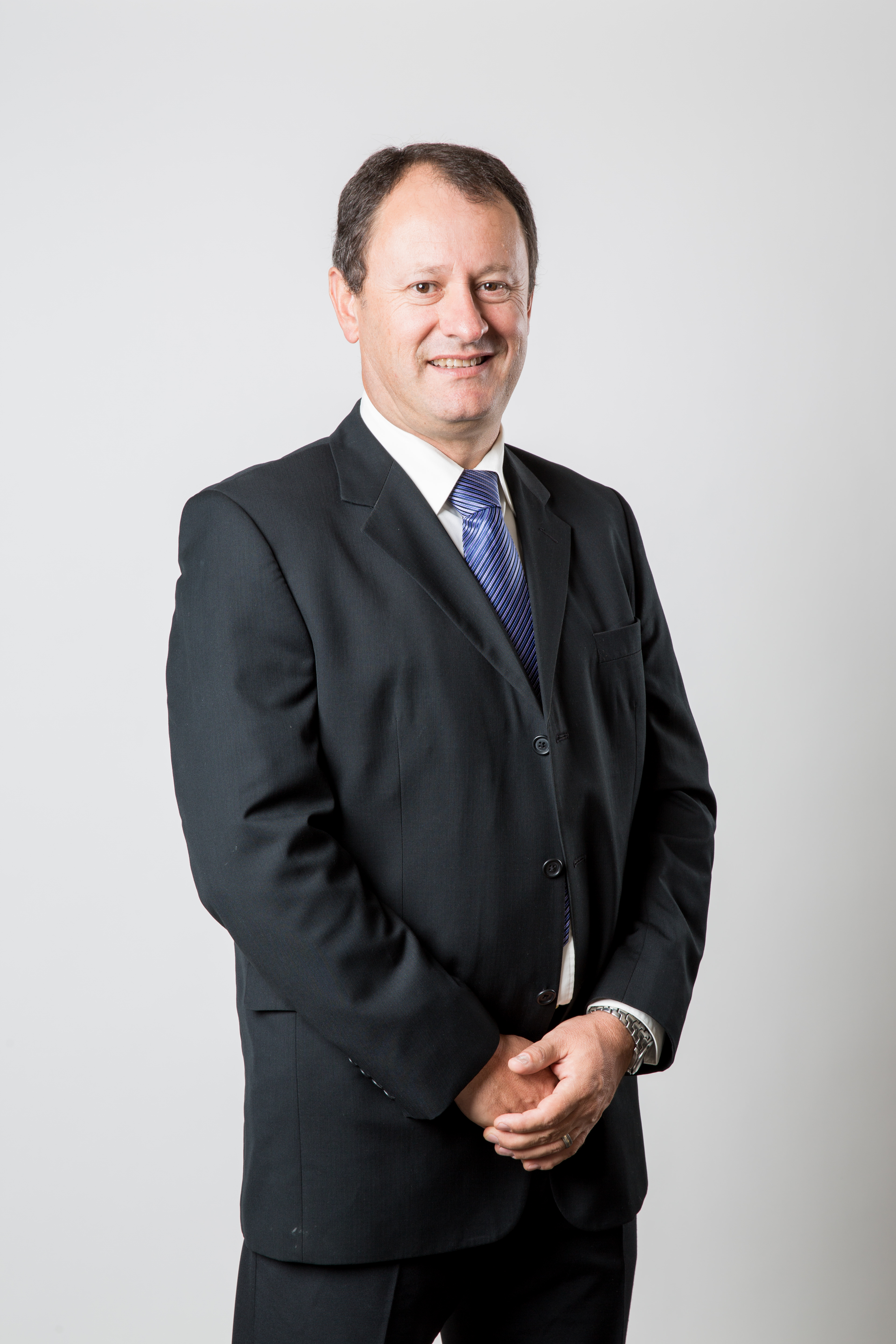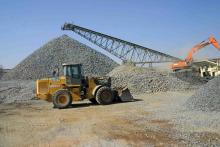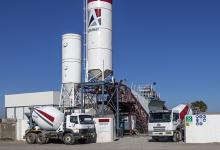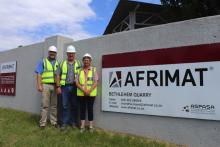
The firm’s HEPS (Headline Earnings Per Share) rose 7.4% to 102.2 cents. Meanwhile, contribution from operations’ margin stood at 16.4%, NAV (Net Asset Value)/share for the period was 809 cents, interim dividend was 20 cents/share, and Afrimat’s return on net operating assets was 22.3%.
Andries van Heerden, CEO of Afrimat, expressed his satisfaction with the results, given current market conditions particularly during the first quarter of the financial year. “Afrimat has since its inception subscribed to being diversified across both products and locations, being deeply knowledgeable about its market and products, driven by an awareness of cost management. This stood us in very good stead in this market.” He went on to comment that this consistent and well-executed approach to strategy supported the results.
Afrimat note that first quarter 2017 trading was impacted by an unusually low number of effective trading days in April 2017 and by major political events that severely impacted business confidence. The second quarter however delivered exceptionally good results, Afrimat states, almost compensating for the first quarter. The group’s diversification strategy is said by the company to have “proved its mettle once again”, with very good results from relatively newly acquired subsidiaries such as Infrasors and Cape Lime. Good results were also posted by the group’s traditional construction materials business in the Western Cape.
Afrimat successfully entered the iron ore industry with the acquisition of a small iron ore mine, Diro. It was bought out of business rescue after a compromise was accepted by the different creditors. Although only 60% was originally acquired, the remaining 40% was subsequently acquired to give Afrimat access to the full value of Diro.
Prior to Afrimat’s acquisition, DIRO’s operations were halted due to financial distress. The mine was accordingly placed into formal business rescue on 7 June 2016.It exited business rescue on 16 August 2017 and commenced with delivery, now under the ownership of Afrimat.
“We are particularly pleased with the results from the traditional construction materials business in the Western Cape and Industrial Minerals divisions Infrasors and Cape Lime” van Heerden said. Revenue was flat at R1.2 billion but headline earnings per share increased by 7.4% from 95.2 cents to 102.2 cents.
Investments in working capital for DIRO prior to start-up and in additional clinker stock for SA Block impacted cash generation temporarily.
“We are pleased to advise shareholders that our dividend policy of maintaining a 2,75 times dividend cover remains in place and an interim gross dividend of 20 cents per share has been declared,” said van Heerden.
The contribution from the Aggregates and Industrial Minerals segment to revenue was 69.2%, Commodities 2.5% and Concrete Based Products contributed the balance of 28.3%. The Aggregates and Industrial Minerals segment generated satisfactory result.
The acquisition of the Emfuleni Clinker Ash Dump, situated in Vereeniging and close to Afrimat’s customers, will ensure an additional three to four years to the lifespan for Clinker Supplies Proprietary Limited. “Clinker is an important product in our offering and we continue to investigate further options to secure additional clinker resources for the group,” van Heerden explained.
The Commodities segment was impacted by the DIRO acquisition and related start-up costs. DIRO is included in the Afrimat results for two months. The operations of DIRO are currently in a ramp-up phase, with the first dense medium separation (“DMS”) plant already in production. DIRO concluded a final product sale agreement for its iron ore product on 16 August 2017 and commenced delivery soon thereafter. “Good progress is being made with the recommissioning of DIRO and this is largely being assisted by the skill sets that Afrimat has in this commodity,” said van Heerden.
The Concrete Based Products segment was impacted by difficult market conditions. “Afrimat experienced market contraction in KwaZulu-Natal, which impacted the results,” van Heerden commented.
No labour action occurred in the period, with the group committed to creating and sustaining harmonious relationships in the workplace and addressing issues proactively.
“In my opinion Afrimat is well positioned to capitalise on its strategic initiatives, such as the continued growth from the diversified asset base. We have the ability to expand the unique product range and turnaround initiatives of selective acquisitions,” van Heerden said.
Operational efficiency initiatives aimed at expanding volumes, reducing costs and developing the required skills levels across all employees, remains a key focus in all operations.
Van Heerden concluded by indicating that Afrimat expects the current business climate to continue, with the group’s growth driven by the successful execution of its proven strategy, recent acquisitions and a wider product offering to the market.









